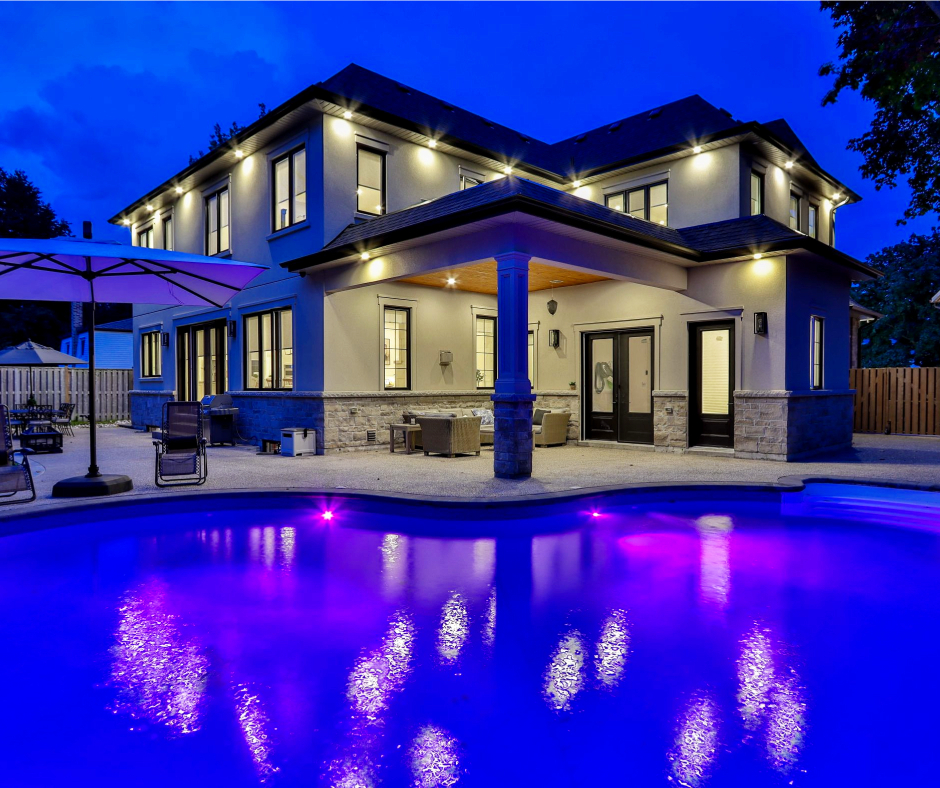Non-QM Jumbo Mortgages For Non-Prime Borrowers
In this blog, we will cover qualifying for non-QM jumbo mortgages for non-prime borrowers, self-employed borrowers, and homebuyers with low credit scores. Government and conventional loans have a maximum loan limit. The maximum loan limit depends on the individual loan program.
Gustan Cho Associates now offers Non-QM jumbo mortgages for non-prime and self-employed borrowers with credit scores as low as 550 FICO. No income tax returns are required for self-employed borrowers. We can use 12 months’ bank statement deposits to calculate qualified income. A 20% to 30% down payment on a home purchase is required on non-QM and alternative financing loan programs.
Traditional Versus Non-QM Jumbo Mortgages
Traditional jumbo loans are full-doc jumbo mortgages. Full documentation and income tax returns are required on traditional jumbo mortgages. Non-QM jumbo mortgages are nonconforming non-traditional high-balance home loans with alternative lending income and credit guidelines. There are different types of non-QM jumbo mortgages.
Non-QM Jumbo Mortgage Guidelines
Each non-QM jumbo mortgage lender has its own lending requirements. Non-QM jumbo mortgages are portfolio loans. Portfolio loans are mortgage loans that are normally held by the lender in their books or sold to preferred private investors on the secondary market.
Besides non-QM loans, Gustan Cho Associates offers traditional jumbo loans with a 10% down payment and credit scores down to 660 FICO. The debt-to-income ratio is capped at 50% on the 90% LTV jumbo loan programs.
How Much Down Payment Is Required on Non-QM Jumbo Mortgages
The down payment requirement on non-QM jumbo mortgages depends on each individual lender. The lower the borrower’s credit profile, the higher the risk for the lender, and the higher the down payment requirement. Borrowers with lower credit scores may require a 30% or more down payment. Other borrowers with higher credit scores may require a 10% to 20% down payment. The lower the loan to value, the lower the mortgage rates on non-QM jumbo mortgages. Higher credit scores yield lower rates and also hold true on traditional jumbo loans. The amount of down payment required depends on borrowers’ credit scores and other factors.
Learn more about Non-QM Jumbo Mortgages with us. Click here!
How Is Qualified Income Calculated on non-QM Jumbo Mortgages?
Lenders of Non-QM jumbo mortgages for self-employed borrowers without income tax returns calculate income on bank statement loans by averaging 12 months of bank statement deposits.
That monthly average is the borrower’s monthly income. Income tax returns are not required. Withdrawals do not matter and do not count.
Up to 50% debt-to-income ratios. Now self-employed borrowers who have a lot of write-offs on their tax returns can qualify for Non-QM jumbo mortgages with no tax returns. In this article, we will cover and discuss Non-QM Jumbo Mortgages For Self-Employed Borrowers.
Loan Limits On Home Loans
Conventional Loans and Government Loans have maximum loan limits. Any loan amount exceeding loan limits is called non-conforming loans or jumbo loans. For example, FHA standard loan limits are capped at $420,680 unless the property is located in a high-cost area. High-cost conforming and FHA loan limits on single-family homes are capped at $970,800 for 2022. For example, The higher FHA loan limits are set by HUD, the parent of FHA, in counties that are classified as high-cost areas.
Maximum Loan Limits on Traditional Conforming Loans
For conventional loans, the Federal Home Loan Mortgage Corporation, Freddie Mac, and the Federal National Mortgage Association regulate the home loan industry. FHFA, The Federal Housing Finance Agency, is the governmental agency that regulates Fannie Mae and Freddie Mac and sets conforming loan limits. Fannie Mae and Freddie Mac regulate conforming guidelines and set maximum lending limits.
Today, the maximum conventional loan limits vary depending on location and property type, but they are typically set by the Federal Housing Finance Agency (FHFA).
These boundaries may fluctuate each year in response to the conditions of the housing market. Standards set by Fannie Mae and Freddie Mac are secured by FHFA and are called conforming loans. Any mortgage loans that fall outside the conforming lending limits are classified as non-conforming loans or JUMBO MORTGAGES.
What Are Jumbo Mortgages?
Jumbo Mortgages are residential mortgage loans that fall over the maximum lending limits set by FHFA. It is called non-conforming loans since it does not conform to the government’s maximum lending limit. Any mortgage loan over the maximum lending conforming limit of $647,200 is considered a Jumbo mortgage. Jumbo mortgages normally have higher interest rates.
What Are The Eligibility Requirements on Jumbo Mortgages Versus Traditional Loans
Qualifications are much tougher than conforming loans. Gustan Cho Associates now offers Jumbo Loans with a 10% down payment. The minimum credit score required is 660 FICO. The maximum debt-to-income ratio to qualify for a 90% LTV Jumbo Mortgage is 50%. This is a traditional jumbo loan program and NOT a non-QM loan product.
Start your mortgage journey with us.
Is It Bad To Have The Most Expensive House In The Neighborhood?
To get approved for Jumbo mortgages, the home needs to appraise. The appraiser needs comparable sales of the higher-priced homes.
Home Buyers can not have a white elephant where most of the homeowners in the neighborhood have standard conforming loans because it will be difficult to get comparable sales.
If the house is the only high-end home that is larger and more expensive than the norm, it will be difficult for the appraiser to get comparable sales.
Down Payment and Credit Score Requirements on Traditional Jumbo Loans
Most folks who seek Jumbo mortgages need to put in a 20% down payment. Most jumbo lenders require credit scores of 700 or higher. Maximum debt to income ratios is capped at 50%. Jumbo borrowers who are seeking the best available interest rates need credit scores of 740 FICO or higher and a loan to value at 75%. Jumbo mortgage interest rates are normally 0.50% higher than regular conforming interest rates.
Conforming Loan Limits
Conforming loan limits set by Fannie Mae and Freddie Mac for 2022 are capped at $647,680 in counties that are not classified as high-cost areas.
- Two-unit buildings, the maximum conforming limit is capped at $828,700.
- For borrowers of three-unit buildings, the maximum conforming limit is capped at $1,001,650.
- The maximum amount for a 4-unit property for a conforming loan is $1,244,850.
- Conforming limits are capped at higher amounts for Hawaii, Alaska, Guam, and the United States Virgin Islands.
- For these areas, the maximum conforming lending limit for a single-family home is $970,800.
- Borrowers two-unit residential properties in high-cost areas, it is $1,243,050.
- High-balance three-unit properties conforming loan limit is capped at $1,502,475.
- For four-unit properties, it is capped at $1,867,275.
Non-QM Mortgages Versus Traditional Jumbo Lending Guidelines
Non-QM Mortgages have much more lenient lending guidelines than traditional jumbo loans. Jumbo Mortgages have tougher mortgage lending criteria than conventional mortgage loans. There is no waiting period after foreclosure, deed in lieu of foreclosure, or short sale to qualify for NON-QM Jumbo Mortgages.
Borrowers with 620 credit scores can qualify for Non-QM jumbo mortgages whereas traditional jumbo lenders want 700 credit scores.
10% to 20% down payment is required on jumbo Non-QM jumbo mortgages where most traditional jumbo lenders want a 10% to 25% down payment. There is no mortgage insurance required on jumbo Non-QM jumbo mortgages even with higher than 80% loan to value.
Non-QM Mortgage Rates Versus Traditional Rates
Interest rates on Non-QM Jumbo mortgages are slightly higher than traditional jumbo loans. Most Jumbo mortgage lenders require a minimum of 20% to 25% down payment on a home purchase. To get the best Jumbo mortgage interest rates, the Jumbo mortgage loan borrower should have at least a 740 credit score, have a 25% down payment, have no more than a 40% debt to income ratio, and have reserves on traditional jumbo loans. However, NON-QM Jumbo Mortgages with lower credit scores. 10% to 20% down payment. 50% debt to income ratio caps on Non-QM jumbo mortgages. The down payment requirements depend on the borrower’s credit scores.
Special NON-QM Jumbo Mortgages For Self-Employed Borrowers
We now offer a 10% down payment, and 90% loan to value, with no private mortgage insurance required for qualified borrowers. Non-QM Mortgages for self-employed borrowers is a special jumbo loan program where no tax returns are required. 12 months of bank statement deposits are averaged and the monthly deposits are used as monthly income.
Borrowers can use personal and/or business bank statements. 100% of deposits can be used on personal bank statements. 50% of deposits are used on business bank statements. Needs to be from the same bank account and multiple bank statements are not allowed. Overdrafts are not allowed. Click here to apply for Non-Qm Jumbo mortgage for Self-Employed Borrowers
Minimum Credit Scores Down To 550 FICO On Non-QM Loans
To qualify, the Jumbo mortgage loan borrower needs to have a minimum credit score of 550. The borrower’s debt-to-income ratios cannot be greater than 50% DTI. Private mortgage insurance is not required on Non-QM jumbo mortgages with higher than 80% LTV. The Jumbo mortgage lender wants to see a strong credit borrower with ample reserves and assets.
80/10/10 Mortgage Loan Programs For Jumbo Home Buyers
An alternative to Jumbo mortgage loans is the 80/10/10 mortgage loan program. This is where the home buyer who wants to purchase a higher-priced home that exceeds the $647,680 conforming limit caps can get a first conventional loan and get a second mortgage. As long as the home buyer can put in a 10% down payment and get a $647,680 conforming loan approved, the difference can be funded from a second mortgage. However, most second mortgage lenders want a 700 credit score and a debt-to-income ratio not exceeding 43%.
Frequently Asked Questions (FAQs)
- What are Non-QM Jumbo Mortgages?
Non-QM Jumbo Mortgages are home loans that don’t meet the qualified mortgage (QM) standards set by governmental entities such as Fannie Mae or Freddie Mac and are designed for high-value properties. - Who qualifies as a non-prime borrower for these mortgages?
Non-prime borrowers typically have credit issues or unique financial situations that prevent them from qualifying for traditional loans. - How do Non-QM Jumbo Mortgages differ from conventional loans?
Non-QM Jumbo Mortgages offer flexibility in underwriting criteria, allowing for alternative income documentation and higher debt-to-income ratios than conventional loans. - What are the typical loan terms and interest rates for non-prime borrowers?
Loan terms and interest rates vary but may include adjustable or fixed-rate options with higher interest rates to mitigate risk for lenders. - What documentation is required to apply for a Non-QM Jumbo Mortgage?
Documentation requirements may include bank statements, proof of income, tax returns, and other financial records. - How does credit history impact eligibility for these mortgages?
While credit history is considered, non-prime borrowers with lower credit scores may still qualify for Non-QM Jumbo Mortgages. - Are there specific property requirements for non-QM jumbo Mortgages?
Properties financed with non-QM jumbo Mortgages often must meet certain value thresholds and may have additional appraisal requirements. - Can self-employed individuals qualify for these loans?
Self-employed individuals can often qualify by providing alternative income documentation such as bank or profit and loss statements. - What are the advantages and disadvantages of Non-QM Jumbo Mortgages for non-prime borrowers?
Advantages include flexibility in underwriting criteria and the ability to finance high-value properties. Disadvantages may include higher interest rates and stricter eligibility requirements. - How can borrowers find lenders offering Non-QM Jumbo Mortgages?
Borrowers can research and contact lenders specializing in non-QM loans or work with mortgage brokers familiar with this market segment.
Home Buyers interested in qualifying for NON-QM Jumbo Mortgages, please contact us at Gustan Cho Associates at 800-900-8569 or text us for a faster response. Or email us at gcho@gustancho.com. The team at Gustan Cho Associates is available 7 days a week, on evenings, weekends, and holidays.
Speak with our expert for your mortgage loan








